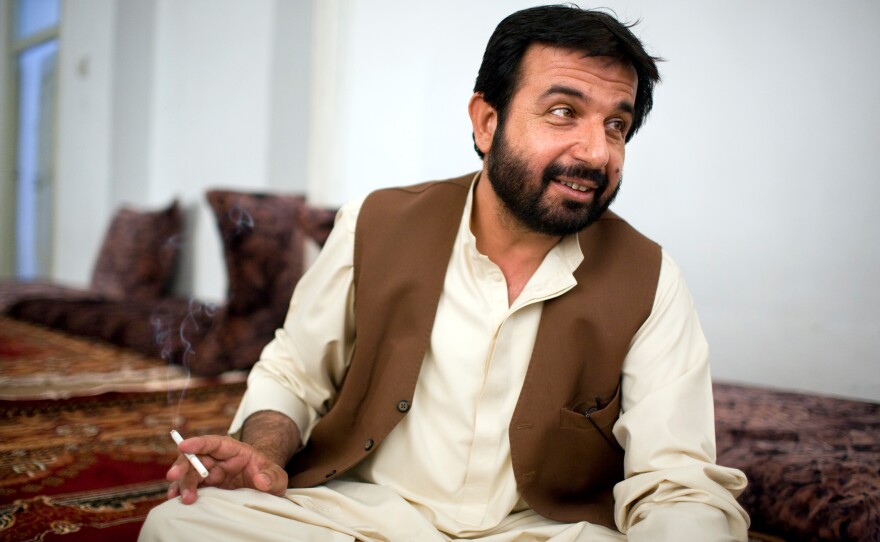Taliban militants have vowed to disrupt Thursday's presidential and provincial council elections in Afghanistan, stoking fears among potential voters even as officials urge them to the polls.
The anxiety is especially noticeable in the south, where a roadside bomb attack in Kandahar province killed two election workers Tuesday night. In the provincial capital of Kandahar, many residents are nervous and undecided about whether to cast their ballots.
"The fear is so great that all the people that I know, none of them are planning to go and vote, including myself," businesswoman Rangina Hamidi says.

More than 17 million Afghans registered to vote in the election. Incumbent President Hamid Karzai is seeking a second term against nearly 40 challengers in balloting buffeted by threats of violence and allegations of fraud.
Security forces in Afghanistan are on high alert as voting gets under way at 7 a.m. local time Thursday (10:30 p.m. EDT Wednesday). The Taliban's threats to deter voters pose a critical challenge to the Afghan government and to the U.S. and other supporters eager to demonstrate the credibility of the elections.
Outside Zarghona Ana High School, in one of Kandahar's safer neighborhoods, many residents predicted that few people would be present at the school Thursday when it turns into one of 66 polling centers in the city.
Abdul Ghafar, a shopkeeper, says he plans to vote. But he says he won't leave the house if he hears of any attacks in Kandahar on Wednesday night.
Ghafar also says that unless there is a visible police presence — which he complained was lacking Wednesday — his family won't go to the polls, either.
He argues that police officers should be at the school already, ensuring that no one plants bombs or otherwise booby-traps this polling center.
The fear, bordering on paranoia, is rampant in Kandahar, especially with an increase in bombings and rocket attacks in recent days throughout the province, the birthplace of the Taliban.

The resurgent Taliban have been strong in Kandahar and elsewhere in southern Afghanistan, which is also the center of the country's thriving opium trade.
For years, few Kandaharis have felt comfortable being outside of their compounds.
As a result, getting them to the polls will not be as easy as it was during the last presidential elections five years ago, the businesswoman Hamidi says. "Everyone is expecting some sort of violent, chaotic attacks," she says.
Many people say they have seen Taliban leaflets tacked up on mosques across the province. They say the leaflets warn that anyone who votes or in any way helps election workers and candidates will be punished.
Mohammad Ehsan, the incumbent deputy chairman of Kandahar's provincial council, says he has had a hard time finding poll monitors to represent his campaign because of the threats. He says one of his campaign workers was recently kidnapped, beaten and paraded around as a warning to others in his village.
Ehsan adds that anticipated election fraud is also likely to keep voters home. He says he has seen such fraud firsthand: Afghan election workers have offered to sell him ballot boxes, each containing 600 votes, for the equivalent of $1,200.
Abdul Wasai Alakozai, the chief electoral officer for southern Afghanistan, says he is aware of such complaints. He says international and Afghan monitors will be on hand to ensure transparency.
"This is the time for Afghan voters to show their courage to the world and choose their president and government," he says, adding that Afghan police and soldiers will be out in force to protect voters.
Copyright 2022 NPR. To see more, visit https://www.npr.org. 9(MDAzMjM2NDYzMDEyMzc1Njk5NjAxNzY3OQ001))







